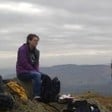Arts and Culture 4 August 2015

Tunisian filmmakers have pulled out of the festival in protest at Israeli state-funded participants. (Campagne BDS Tunisie)
Despite attempts by the festival organizers both to rebrand the section of the festival devoted to Israeli state-funded films — and to “balance” them with Arabic films from North Africa — the signatories to the boycott remain firm in their commitment not to participate at Locarno.
With financial support from the Israeli government, the “Carte Blanche” section of the festival was to be devoted to films from Israel, shown in the final stages of production to highlight up-and-coming directors to an industry audience.
Now, the festival seems to be attempting to duck condemnation of its relationship with the State of Israel — and the growing boycott — by changing the name of the “Carte Blanche” feature.
Citing “some of the reactions that this year’s edition has provoked,” the Locarno International Film Festival website claimed that the decision had been made “to change the name of the initiative, re-naming it ‘First Look,’ as the previously used ‘Carte Blanche’ did not reflect accurately enough the way in which the project is organized and gave rise to misinterpretations.”
“Balance”
In what looks like a cynical bid at what is sometimes claimed as “balance,” another section of the festival — the Open Doors program — was this year supposed to be devoted to films from the Arabic-speaking North African countries of Morocco, Algeria, Libya and Tunisia.
The festival website made similar spurious claims in its original April statement defending the choice of Israel for the (then-named) “Carte Blanche” program when it suggested that:
This was the case in 2007 when the Festival dedicated the Open Doors section to the Mashrek countries (Syria, Lebanon, Jordan, Israel, Iraq, the Palestinian territories and Egypt), with the 2006 Pardi di domani retrospective “East of the Mediterranean” or with the focus in 2013 on Syrian films, produced despite incredibly difficult conditions. For us, these principles of artistic liberty are a creed that cannot be renounced.
However, according to a statement from BDS Tunisia, most of the Tunisian directors and producers have withdrawn their films from the festival in protest of the Israeli institutional presence. The relevant page on the festival website seems to confirm turmoil within the program, as it has been taken down and no new content has been added.
And according to an email sent to The Electronic Intifada by prizewinning Palestinian director Annemarie Jacir, several of the Algerian and Moroccan directors have also pulled out, signaling the unwillingness of artists from the Arab world to be used to whitewash Israel.
Rebranding
As well as valuable exposure to industry professionals, the films screened in the “First Look” program will be eligible for an award comprising 60,000 euros ($65,670) worth of post-production services from Rotor Film and advertising support worth 5,500 euros ($6,021) from Le Film Français.
According to Israeli newspaper Haaretz, the festival organizers had gone on to say that the name change had take place because “The nature of the project dedicated to Israeli cinema is not a ‘carte blanche,’ since it is not a platform offered to the State of Israel or to the Israel Film Fund, and because the choice of films in post-production is solely down to the festival’s artistic directorate.”
However, Haaretz also claims that the festival’s official program “made it clear that Israeli cinema would enjoy even more representation.”
Two more Israeli films have been given even more prominent positions within the festival schedule and on awards shortlists. Israeli film director Nadav Lapid has been named as a juror for one of the festival’s prizes.







